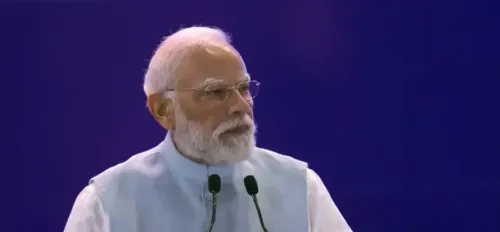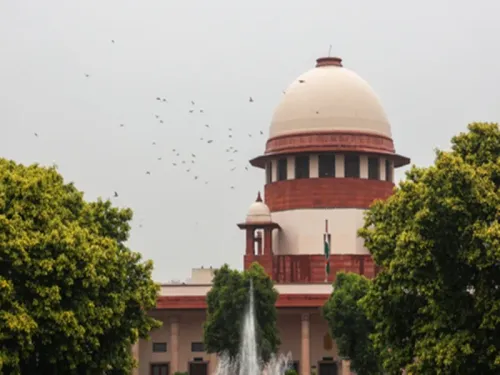Are B'desh's BNP and Jamaat in Conflict Over Democracy and Religious Freedom?

Synopsis
Key Takeaways
- BNP warns against dangerous forces threatening democracy.
- Jamaat-e-Islami accused of promoting radical ideologies.
- Concerns about the legitimacy of recent student elections.
- Rizvi raises alarms about a potential hidden agenda.
- International community views Hasina's exit as a setback.
Dhaka, Sep 15 (NationPress) The Bangladesh Nationalist Party (BNP) has raised serious alarms regarding the emergence of "dangerous forces" within the nation, stating that they constitute a "significant threat" to democratic values, religious freedom, and the rich tapestry of cultural diversity, as reported by local media on Monday.
During a gathering arranged by the Diploma Engineers Association of Bangladesh in Dhaka, BNP Senior Joint Secretary General Advocate Ruhul Kabir Rizvi emphasized that many participants in the protests from July-August of the previous year are now "seeking to impose a new form of cultural dominance" across the nation.
He further accused the radical Islamist party Jamaat-e-Islami of manipulating religious sentiments to advance the ideology of its founder, Syed Abul Ala Maududi, under the guise of Islam.
Rizvi's comments followed a recent statement by Jamaat Secretary General Mia Golam Porwar, who suggested halting the hiring of music and dance educators in government primary schools in favor of appointing religious teachers to instill moral values in students.
"In our culture, people pray five times a day, enjoy television dramas, and listen to music - this is our reality. However, if we push for a one-sided narrative, fascism will inevitably rise. The most extreme form of fascism leads to radical communalism and radical religious politics," Rizvi was quoted by the leading Bengali daily 'Jugantor'.
He also expressed doubts about the legitimacy of the recent student union elections at Dhaka University and Jahangirnagar University, where Jamaat's student wing, Islami Chhatra Shibir, secured pivotal positions.
Rizvi alleged the presence of a concealed agenda aimed at eradicating nationalist forces.
"Is there a hidden blueprint to eliminate nationalist elements within the state and university authorities? This concern resonates with the public today. The ballots for the DUCSU and JACSU elections were printed by a private firm, closely linked to a specific political party. Isn't this an irregularity?" he questioned.
"The state and university authorities appear to be collaborating on a master plan, suggesting - we've ousted the Awami League, and now we must vanquish the BNP too. Isn't this part of their overarching strategy? If any unilateral actions occur, a new type of fascism could emerge, jeopardizing national consciousness," Rizvi continued.
These parties, which previously allied with Muhammad Yunus to displace the democratically elected Awami League government led by Sheikh Hasina, now find themselves at odds.
The abrupt departure of Hasina last August was perceived globally as a significant setback for the democratic framework in the country.
The Yunus-led interim government has faced substantial criticism for allowing radical and extremist Islamic groups to gain a foothold.









